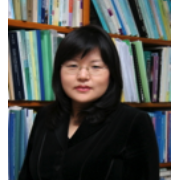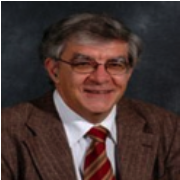J1: Understanding role of content knowledge in pedagogical content knowledge: “Elementary mathematics from an advanced standpoint” (Room No: TR 716)

Professor Kwon Oh Nam
Seoul National University
Abstract: Mathematics education researchers have investigated the knowledge for teaching mathematics, and classified the knowledge largely as Content Knowledge (CK) and Pedagogical Content Knowledge (PCK). CK is conceptualized as the academic mathematical knowledge, as presented in a bachelor mathematics program (e.g. analysis, linear algebra, abstract algebra etc.), and according to Shulman, PCK is the knowledge “which goes beyond knowledge of subject matter per se to the dimension of subject matter knowledge for teaching”. The purpose of this workshop is to extend our understanding of the correlation between CK and PCK. Particularly, we will use the items that were developed for testing PCK in secondary teacher qualification in Korea as examples for discussion and analysis. It will provide opportunity to analysis what is the role of CK to build up PCK. Furthermore it can help you to understand PCK as an amalgam of many different knowledge types, and partially we expect to be able to improve PCK of participants.
J2: Discovering conics with Geogebra (Cauchy Lab [7-B1-14])

Prof Toh Pee Choon
National Institute of Education
Abstract: The aim of this workshop is to investigate some geometric properties of various conic sections through the use of the dynamic geometry software GeoGebra. Activities suitable for H2 Further Mathematics students will be introduced. No prior knowledge of the Geogebra software is assumed. The workshop will be conducted at a computer laboratory and participants need not bring their own computer notebooks.
J3: Empowering Junior College students with a graphics calculator (Room No: TR 717)

Emeritus Associate Professor Barry Kissane
Murdoch University, WA, AUSTRALIA
Abstract: Calculators are regularly misunderstood as devices solely for arithmetic computation, including computation in examinations, and even at times regarded as unhelpful for students learning mathematics. Yet, development of graphics calculators in recent decades has been focused on their use as educational devices, and calculator design has been heavily influenced by the needs of senior secondary school students. In this hands-on workshop, we will consider ways in which graphics calculators can be used educationally, focusing on a four-part model for calculator use developed by the author and colleagues in recent years. While computation is an important aspect of calculator use, representation, exploration and affirmation are also important aspects, and a graphics calculator will not be likely to empower students learning mathematics if it is restricted to computation. During the workshop, we will consider examples of empowering uses of graphics calculators in selected parts of the Mathematics Higher 1 and Higher 2 courses. CASIO fx-9860GIIs graphics calculators will be made available for use by participants, but teachers are welcome to bring to the workshop the calculator that their students generally use, should they prefer. Participants are also welcome to bring examples of the educational use of calculators to share with other participants.
J4: Integrating mathematical reasoning in learning advanced mathematics (Room No: TR 718)

Dr Hang Kim Hoo and Mr Tan Liang Soon
Jurong Junior College
Abstract: The re-introduction of Further Mathematics at the A-Levels in 2016 is a positive development in providing better opportunities for interested or talented students to learn, do and use mathematics more deeply. This workshop hopes to provide participants an insight into an enhanced approach where students learn advanced mathematics (i) through the scaffolding and integration of mathematical thinking processes, and (ii) in tandem with the professional development in mathematical discourse for the mathematics teachers involved. It is hoped that the learning and experiences acquired will provide further impetus to the development of new ways of learning and teaching of Mathematics beyond the current lecture and tutorial system at the junior colleges.
Copyright © MTC 2016 · All Rights Reserved